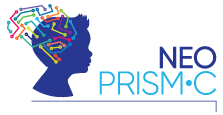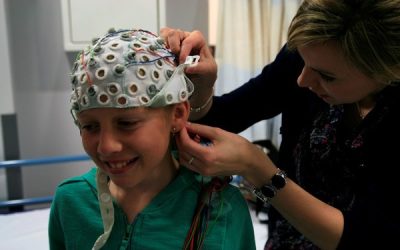Nobody is more excited than a doctoral student publishing their first research article. Indeed, realising that there it was, the first brainchild out of my doctoral project, felt amazing. Much to my disappointment, however, after a few newspapers/websites disseminated the news about my study I discovered that not everyone was as excited about my findings as I was. “We already knew that!” and “Why are we funding this type of research if these scientists simply keep reinventing the bicycle?” – I read some people exasperate in comment sections. I admit my study might not be the most ground-breaking research out there, but it does have value, and, in this blogpost, I would like to explain why it is the case and why it is often hard to impress people when you are studying learning disabilities.
It has long been known that developmental dyslexia and dyscalculia (reading and mathematical difficulties) are passed down within families, but it is not yet clear if these conditions are transmitted only through the genetic pathway or if there is an influential environmental component too. If there is, then we can potentially develop better ways to support children with learning difficulties. When I say “not yet clear”, I don’t mean that scientists don’t know that the environment children spend most of their time in (at home) can have an effect on their reading and mathematical development. Rather, I mean that there is some evidence that specific home learning activities might be particularly beneficial, but we don’t know if the same activities are the best ones across different contexts, how big their influence is and if it is big enough to produce remediation of genetically transmitted learning difficulties. Moreover, some studies show that parents with difficulties provide a more disadvantageous learning environment for their children while others point to the opposite indicating that these parents organise as much (if not more) learning activities as parents without learning di?culties. Developing evidence-based recommendations for different groups of parents on how to nurture their children’s skills is going to be a long process requiring a multitude of seemingly unexciting studies.
In our study, we found that shared reading with parents (rather than direct literacy teaching) at pre-school age contributed to children’s later reading comprehension. At the same time reading fluency did not seem to be affected by any home activity. This, of course, has important implications for parents – regardless of whether your child has dyslexia or not, you can and should help them build skills by organising shared reading activities. Such findings might seem self-evident to you but knowing that something is good for you (or for your children) doesn’t always translate into the right action. However, hearing repeatedly about the benefits of something increases the likelihood of you changing up your ways. In addition, even if you are already doing what research is recommending that doesn’t mean that everyone is like you. For example, our study also showed that mothers with lower education were more likely to focus on formal teaching rather than shared reading, but these activities did not seem to help children develop. Hearing about our findings could potentially help parents realise that their efforts should be redirected.
Yes, based on previous studies we suspected these connections could be there, but our research efforts extended existing evidence in two important ways – we found these connections 1) in a big population-based sample and 2) within our specific context (Finland). It is a standard practice in science to conduct exploratory research on a small scale first and then confirm potential associations in bigger samples. Just because previous research with smaller samples suggested something, we cannot assume that we will find the same associations in bigger samples. Another important aspect in research is context – if a finding was reported by scientists in one country that doesn’t necessarily mean that the same finding can be produced across the globe, especially if we are talking about educational activities. For example, in our study we saw that direct parental teaching did not seem to help children develop. This could be attributed to the Finnish educational system being famously efficacious and having emphasis on equality. Indeed, it is likely that public education in Finland provides enough quality teaching to all to the extent that teaching at home loses its significance. However, educational systems are very different across the world and teaching at home could be extremely beneficial in other countries, especially in places with high socio-economic disparities.
It is important to understand that expecting all scientists to produce scientific revolutions with every study is not realistic (the same way as it is not realistic to expect all sports people to constantly break records and all actors to win Oscars with every performance). In fact, when scientists work towards unrealistic expectations, we get bad science, to put it simply, potentially leading to very dangerous conclusions! Remember that guy who created a sensation by reporting a connection between vaccines and autism? Yes, there was quite a stir turning him into an overnight celebrity but then it turned out that his study wasn’t methodologically sound and later studies did not replicate the claimed connection. Replication studies might not sound exciting, but they are crucial for ensuring highest scientific standards. Even though occasional scientific hiccups are inevitable, overall scientists are determined to get to the bottom of things, methodically and one boring study at a time. Not all research is perfect, but the world today does have high quality science, the highest it has ever been in the entire human history. Let’s celebrate that, even when we see scientific efforts that do not seem all that impressive.






